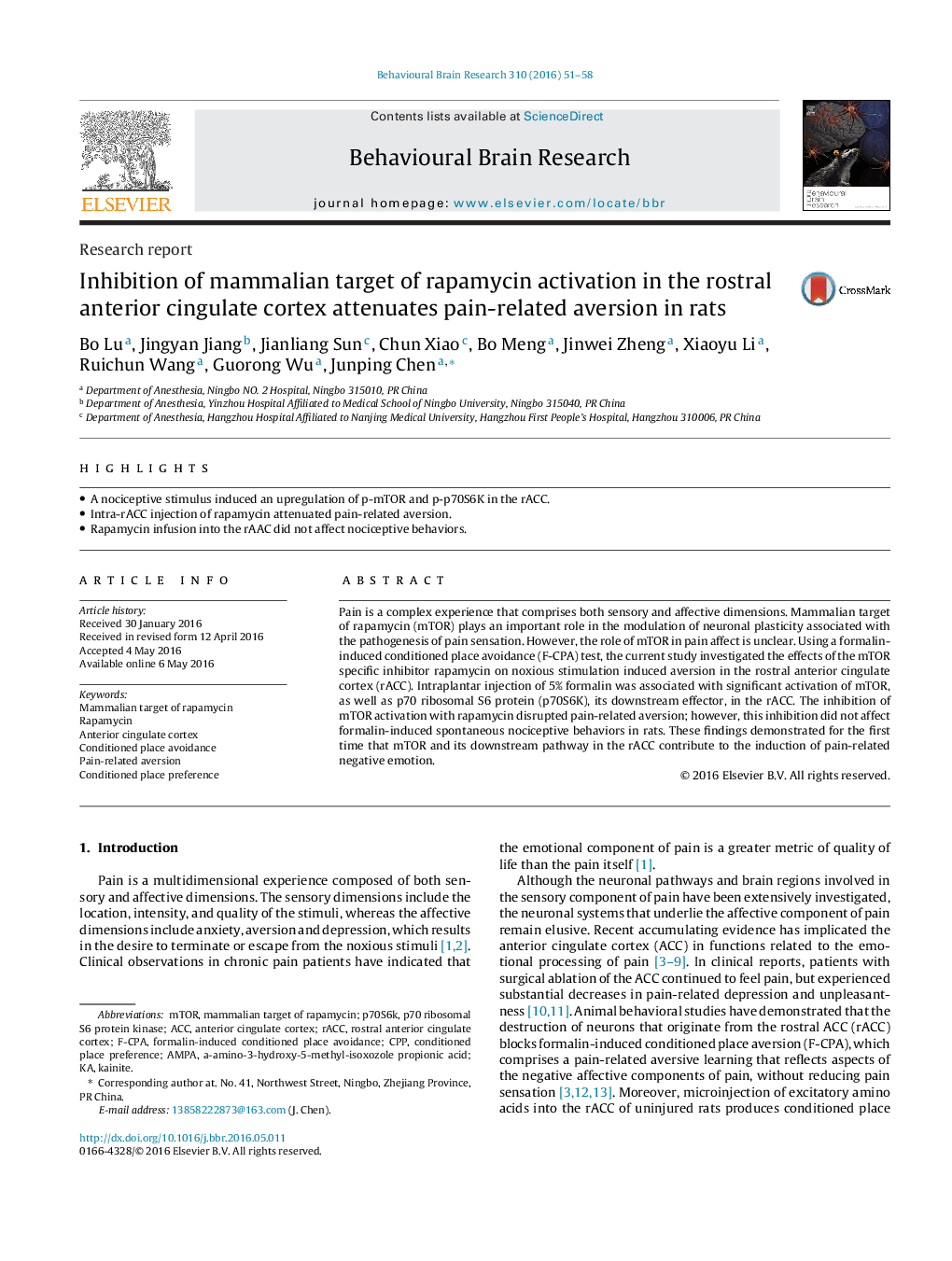| Article ID | Journal | Published Year | Pages | File Type |
|---|---|---|---|---|
| 4312130 | Behavioural Brain Research | 2016 | 8 Pages |
•A nociceptive stimulus induced an upregulation of p-mTOR and p-p70S6K in the rACC.•Intra-rACC injection of rapamycin attenuated pain-related aversion.•Rapamycin infusion into the rAAC did not affect nociceptive behaviors.
Pain is a complex experience that comprises both sensory and affective dimensions. Mammalian target of rapamycin (mTOR) plays an important role in the modulation of neuronal plasticity associated with the pathogenesis of pain sensation. However, the role of mTOR in pain affect is unclear. Using a formalin-induced conditioned place avoidance (F-CPA) test, the current study investigated the effects of the mTOR specific inhibitor rapamycin on noxious stimulation induced aversion in the rostral anterior cingulate cortex (rACC). Intraplantar injection of 5% formalin was associated with significant activation of mTOR, as well as p70 ribosomal S6 protein (p70S6K), its downstream effector, in the rACC. The inhibition of mTOR activation with rapamycin disrupted pain-related aversion; however, this inhibition did not affect formalin-induced spontaneous nociceptive behaviors in rats. These findings demonstrated for the first time that mTOR and its downstream pathway in the rACC contribute to the induction of pain-related negative emotion.
